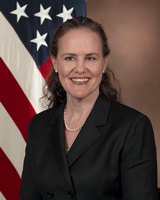Ironically, the cyber-attack that shut down the Web sites of the Department of the Treasury and the Federal Trade Commission struck on Independence Day. Because as unsophisticated as the attacks were, they made it clear that the U.S. is as intertwined with its enemies as it is with its allies, in a newly emerging, little-understood, and rapidly evolving 21st-century terrain.
In probing the future of American influence, it's apparent now that cyberspace occupies a prominent place in an unwieldy battlefield known as the global commons. Michele Flournoy -- who holds the position of undersecretary of defense for policy at the Pentagon, and is sometimes mentioned as a possible successor to Secretary of Defense Robert Gates -- is now the big mind leading the Quadrennial Defense Review (QDR), the strategic overhaul that takes place at the Pentagon every four years. And for her, more than anything, the global commons is where the U.S. will confront the new nature of conflict.
The QDR isn't due until after the New Year, but Flournoy has just offered a glimpse of what it will look like in "The Contested Commons," a piece co-authored with Shawn Brimley in Proceedings Magazine (published by the U.S. Naval Institute). It could be said that Flournoy's thinking -- and what will likely come of the new QDR -- signals the advent of a new strategic landscape where the three chief threats that will face the U.S. in decades to come will be found: emerging powers vying for influence over the global commons, enemies waging hybrid warfare, and the instability of failed states.

